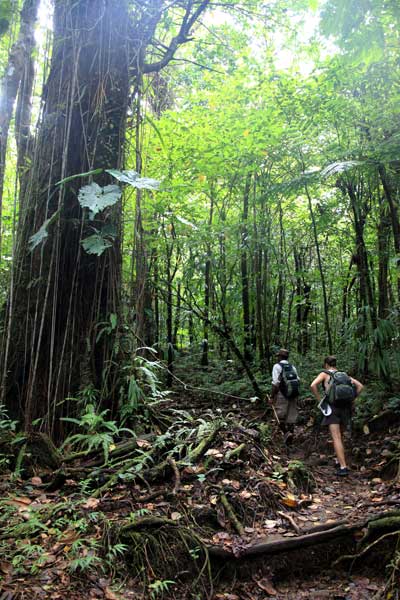On The Road: Eggs over easy in the Caribbean
Sarah Cameron in Dominica

Your support helps us to tell the story
From reproductive rights to climate change to Big Tech, The Independent is on the ground when the story is developing. Whether it's investigating the financials of Elon Musk's pro-Trump PAC or producing our latest documentary, 'The A Word', which shines a light on the American women fighting for reproductive rights, we know how important it is to parse out the facts from the messaging.
At such a critical moment in US history, we need reporters on the ground. Your donation allows us to keep sending journalists to speak to both sides of the story.
The Independent is trusted by Americans across the entire political spectrum. And unlike many other quality news outlets, we choose not to lock Americans out of our reporting and analysis with paywalls. We believe quality journalism should be available to everyone, paid for by those who can afford it.
Your support makes all the difference.I arrived at my homestay on the Waitukubuli National Trail, tired and dishevelled, to be greeted by the sight of hundreds of eggs all over the kitchen: buckets of dirty eggs on the floor, rows of washed eggs drying on towels on the work surface and trays of clean eggs stacked and waiting to go to market.
Luckily there was still room to cook up a delicious curry of chicken and ground provisions for our evening meal, judiciously stewing the old hen in a pressure cooker. Nothing was wasted; the feet were sucked clean by my host, while her teenage son requested the giblets and speared the heart as his most tasty morsel.
The background music was the sound of hundreds of tweeting day-old chicks, the next generation of laying hens, who had just arrived in Dominica on a flight from Barbados. After the stress of their first day on earth, they stayed the night in the house before being introduced to their new quarters, ready for a visit from a group of local schoolchildren later in the morning. Despite her busy schedule as a smallholder growing a wide range of fruit and vegetables as well as the chickens, my host, Gillies, also finds time to host and guide hikers on the Trail.
The community has spent the last couple of years clearing the old paths, smugglers' routes and slave trails, which join their stretch in the north-west of Dominica around Capuchin to the rest of the National Trail. Now complete, it runs the length of the island from the far south, up and down mountains and through steamy forests.
We scrambled down the steep hillside to the sea and followed the coastline south to the Cabrits peninsula, named by the French after the wild goats that used to roam there. A "moderate" hike, you still need the fitness of a mountain goat to pick your way over the large, unsteady boulders. "Rock jumping" Gillies called it, as we dodged the waves and tried to keep our footing.
For a 35 per cent discount off any Footprint guidebook, enter "indy11" at checkout at footprinttravelguides.com.
Join our commenting forum
Join thought-provoking conversations, follow other Independent readers and see their replies
Comments